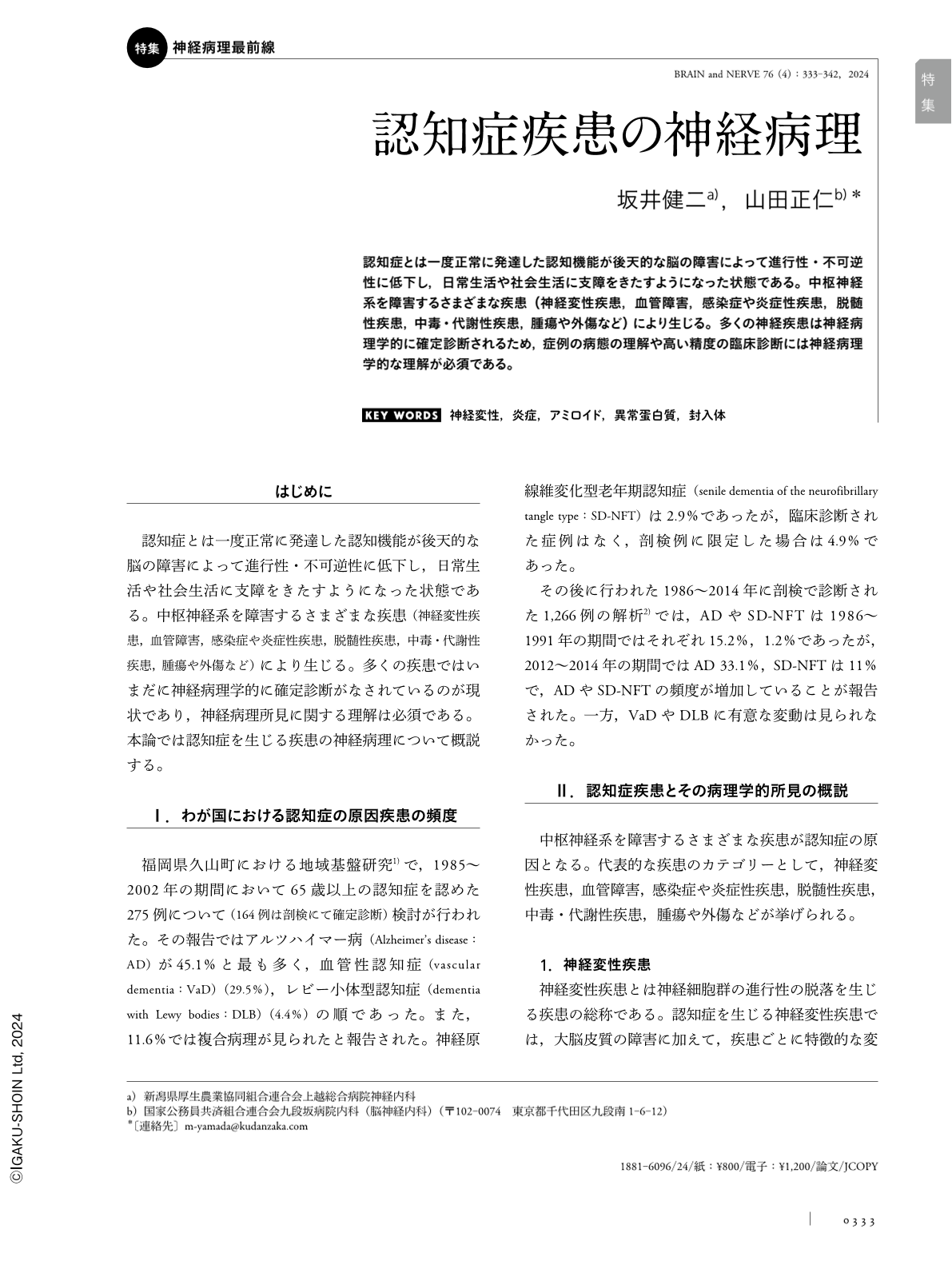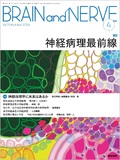Japanese
English
- 有料閲覧
- Abstract 文献概要
- 1ページ目 Look Inside
- 参考文献 Reference
認知症とは一度正常に発達した認知機能が後天的な脳の障害によって進行性・不可逆性に低下し,日常生活や社会生活に支障をきたすようになった状態である。中枢神経系を障害するさまざまな疾患(神経変性疾患,血管障害,感染症や炎症性疾患,脱髄性疾患,中毒・代謝性疾患,腫瘍や外傷など)により生じる。多くの神経疾患は神経病理学的に確定診断されるため,症例の病態の理解や高い精度の臨床診断には神経病理学的な理解が必須である。
Abstract
Dementia is characterized by acquired cognitive dysfunction caused by various neurological disorders. Many neurological conditions can cause dementia, including neurodegenerative diseases, vascular disorders, infections, inflammation, demyelination, intoxication, metabolic disorders, tumors, and head trauma. Despite recent developments in biomarkers and imaging techniques, neuropathological examination is necessary for the final diagnosis. Moreover, approximately 11% of the patients with dementia have dual or triple pathological conditions. The coexistence of neurological diseases makes it difficult for neurologists to diagnose patients accurately. Degenerative diseases are characterized by neuronal loss with gliosis in distinct parts of the brain, the presence of neuronal or glial inclusions, and abnormal protein accumulation. Senile plaques and neurofibrillary tangles are neuropathological hallmarks of Alzheimer's disease. These findings are characterized by the presence of amyloid β protein (Aβ) and phosphorylated tau protein, respectively. Although vascular dementia is common, it may be difficult to identify the relationship between vascular lesions and cognitive impairment. The incidence of sporadic Aβ-type cerebral amyloid angiopathy (CAA) tends to increase with age and causes dementia due to vascular dysfunction and leukoencephalopathy. Furthermore, patients with CAA can develop inflammation. Clinical neurologists should possess a neuropathological perspective for the appropriate diagnosis and management of patients with dementia.

Copyright © 2024, Igaku-Shoin Ltd. All rights reserved.


